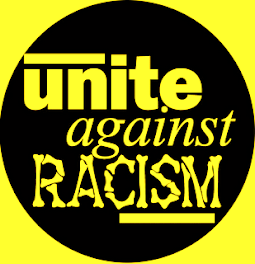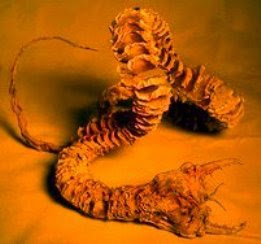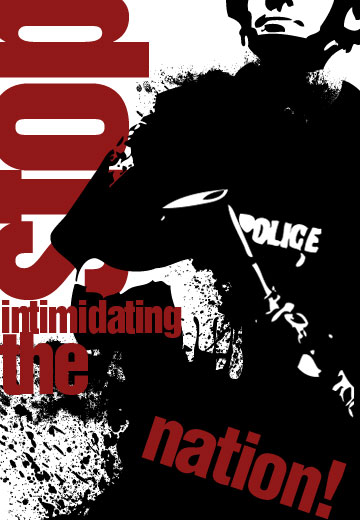
The National Flag of Malaysia
14 equal horizontal stripes of red (top) alternating with white (bottom); there is a blue rectangle in the upper hoist-side corner bearing a yellow crescent and a yellow 14-pointed star; the crescent and the star are traditional symbols of Islam; the design was obviously based on the flag of the United States of America.
Some information about Malaysia
Government type: Constitutional Monarchy
Note: Nominally headed by paramount ruler, (commonly referred to as the King) who is elected every five years from amongst the sultans and a bicameral Parliament consisting of a nonelected upper house and an elected lower house; all Peninsular Malaysian states have hereditary rulers (commonly referred to as sultans) except Melaka and Pulau Pinang (Penang); those two states along with Sabah and Sarawak in East Malaysia have governors appointed by government; powers of state governments are limited by federal constitution; under terms of federation, Sabah and Sarawak retain certain constitutional prerogatives (e.g., right to maintain their own immigration controls).
Constitution
Effective on 27 August 1957; (Note: Formal independence was only achieved on 31 August 1957, however) has been amended many times; the latest amendment was made in 2007
Federal Constitution of Malaysia is the supreme law.
This document also defines the rights and responsibilities of the federal government, the member states of the federation and the citizens and their relations to each other.
As of early 2006, the number of individual amendments to the constitution is estimated to be about 650, a substantial number of which were technical and consequential amendments throughout the Constitution necessitated by territorial changes.
International Disputes:
Malaysia has asserted sovereignty over the Spratly Islands together with China, Philippines, Taiwan, Vietnam, and possibly Brunei; while the 2002 "Declaration on the Conduct of Parties in the South China Sea" has eased tensions over the Spratly Islands, it is not the legally binding "code of conduct" sought by some parties; Malaysia was not party to the March 2005 joint accord among the national oil companies of China, the Philippines, and Vietnam on conducting marine seismic activities in the Spratly Islands; disputes continue over deliveries of fresh water to Singapore, Singapore's land reclamation, bridge construction, and maritime boundaries in the Johor and Singapore Straits; in November 2007, the ICJ will hold public hearings in response to the memorials and countermemorials filed by the parties in 2003 and 2005 over sovereignty of Pedra Branca Island/Pulau Batu Puteh, Middle Rocks and South Ledge; (update: October 2008 - The International Court of Justice finds that Singapore has sovereignty over Pedra Branca/Pulau Batu Puteh; that Malaysia has sovereignty over Middle Rocks; and that sovereignty over South Ledge belongs to the State in the territorial waters of which it is located). ICJ awarded Ligitan and Sipadan islands, also claimed by Indonesia and Philippines, to Malaysia but left maritime boundary and sovereignty of Unarang rock in the hydrocarbon-rich Celebes Sea in dispute; separatist violence in Thailand's predominantly Muslim southern provinces prompts measures to close and monitor border with Malaysia to stem terrorist activities; Philippines retains a dormant claim to Malaysia's Sabah State in northern Borneo; Brunei and Malaysia agreed in September 2008 to resolve their offshore and deepwater seabed dispute, resume hydrocarbon exploration and renounce any territorial claims on land; piracy remains a problem in the Malacca Strait.
Trafficking in Women & Children and Involuntary Servitude Forced Labour:
Malaysia is a destination and, to a lesser extent, a source and transit country for women and children trafficked for the purpose of commercial sexual exploitation, and men, women, and children for forced labor; Malaysia is mainly a destination country for men, women, and children who migrate willingly from South and Southeast Asia to work, some of whom are subjected to conditions of involuntary servitude by Malaysian employers in the domestic, agricultural, construction, plantation, and industrial sectors; to a lesser extent, some Malaysian women, primarily of Chinese ethnicity, are trafficked abroad for commercial sexual exploitation.
Tier rating: Tier 2 Watch List - Malaysia improved from Tier 3 to the Tier 2 Watch List for 2008 when it enacted comprehensive anti-trafficking legislation in July 2007; however, it did not take action against exploitative employers or labor traffickers in 2007; the government has not ratified the 2000 UN TIP Protocol (2008).
Illicit Drugs:
In Malaysia drug trafficking prosecuted vigorously and carries severe penalties; heroin still primary drug of abuse, but synthetic drug demand remains strong; continued ecstasy and methamphetamine producer for domestic users and, to a lesser extent, the regional drug market.
Main Source: CIA WORLD FACTBOOK, please click HERE
The honours change the customs. (Power corrupts)



























No comments:
Post a Comment